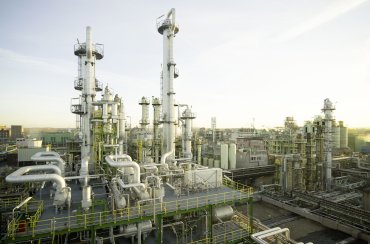
Oxea announced on July 5 plans to build a new plant in Oberhausen, Germany, by the end of 2021 to produce carboxylic acids, which are used in manufacturing lubricant esters.The company had previously announced in January plans to expand capacity to make such products.
The Monheim, Germany-based chemical company claims to be the worlds largest producer of carboxylic acids, with global capacity of 180,000 metric tons per year. Oxea said in a press release that once the new facility comes on stream, it will increase the companys carboxylic acid production capacity by more than 30 percent. Capacity for one particular type of carboxylic acid, isononanoic acid, will double.
With our new plant, we intend to substantially improve the supply situation for isononanoic acid, said Kyle Hendrix, global commercial director for carboxylic acids and derivatives at Oxea, in the press release. Oxea will additionally set up its own dedicated logistics hub in Asia to support the growth and agility of the Asian market.
Oxeas carboxylic acids are used in the production of synthetic refrigeration lubricants. It currently produces carboxylic acids at three plants in Oberhausen and one plant each in Marl, Germany, and Bay City, Texas, United States.
The company did not disclose the cost of the plant, nor did it respond to questions regarding the plant by deadline.
In a January press release, Oxea said it was also considering sites in Oman and China for the new facility. Oxea is owned by Oman Oil Co.
Our Oberhausen manufacturing facility offers definitive advantages in speed of construction and integration into our existing production network, Oxea Chief Operating Officer Oliver Borgmeier said in the January news release. The construction of our sixth carboxylic acids plant plays an essential role in Oxeas growth vision, and we will continue to improve and debottleneck the manufacturing processes at our acid units in 2020 and 2021.
In May, Oxea announced it had completed a debottlenecking project of its existing isononanoic acid production units in Oberhausen.
Demand for synthetic refrigeration oils is rising due to initiatives to phase out the use of hydrofluorocarbons. The Montreal Protocol, an international agreement to stop using substances harmful to the ozone layer, is one of those initiatives. The agreement established that countries phase out the use of chlorofluorocarbons, which were widely used in refrigerants but later found to create holes in the ozone layer.
HFCs were an initial substitute, but their status as greenhouse gasses made them a target of efforts to combat global warming, though they arent directly harmful to the ozone layer. The Kigali amendment of the Montreal Protocol, which took effect Jan. 1, mandates that most developed countries cut their HFC production by 80 percent by 2045.
Photo courtesy of Oxea
